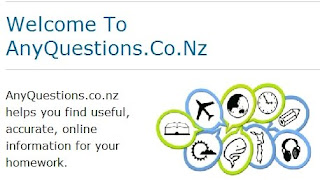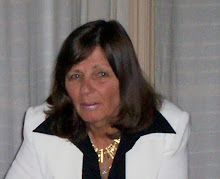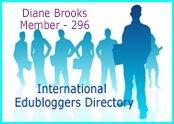
Thursday, October 15, 2009
Smart Tables

Sunday, October 11, 2009
How a Wiki can be used as a learning tool
If you’re almost always connected to the Internet either on your phone or your computer, you’ll know that a wiki is something that is as common as a newspaper once was. It’s where we go to look for information; it’s what we reference when we’re researching a topic; and it’s what we read when we’re trying to gain some knowledge. The enormous success of Wikipedia has demonstrated the power of collaborative effort, one that works through individual contributions that are collated as a whole and organized and cross-referenced for easy navigation. Technology has thrown up quite a few tools for pedagogy, and the wiki is one of them. To learn how the wiki can be used as an effective teaching aid and tool, read on:
- Teachers can use wikis to publish up to date information on courses, lesson plans, syllabi, and other info that are useful for students.
- Students in high school can use them to collaborate on projects with their classmates. The advantage of a wiki as a collaborative and sharing tool is that it facilitates online education too, so students can be far apart geographically and yet stay connected through the Internet. This helps when projects are meant to be completed during vacation or a short break from school.
- College students can use it to collaborate on research projects
- Wikis make great tools for the presentation and evolving of ideas in new projects
- Teachers can use them as part of their e-portfolios to reflect their teaching ideology and methodology and the advances they have made in the personal journey as academicians.
- Students can use it to keep record of their thoughts and ideas on lessons, using it as a notebook to jot down their interpretation of prescribed readings.
- Wikis are a great tool for improving the knowledge of students and broadening their horizons because they provide information on anything under the sun.
- They also provide students and teachers with opportunities to add to common knowledge by putting up wikis of their own or adding to ones that already exist.
- Wikis help link to various resources, thus bringing them all under one page even though they are sorted and arranged according to category and type.
- Wikis make perfect tools for writers collaborating on a project; each member of the team is responsible for editing and maintaining certain sections of the project while one person is given the responsibility of organizing the entire article into a coherent form.
By-line:
This guest article was written by Adrienne Carlson, who regularly writes on the topic of accelerated online degrees . Adrienne welcomes your comments and questions at her email address: adrienne.carlson83@yahoo.com
Wednesday, September 30, 2009
Web 2.0 Projects Book

Wednesday, September 23, 2009
Open Education Resource (OER)
"The OER Foundation is a new not-for-profit organisation that will assist
education institutions in New Zealand and around the world to reduce costs
through open education resources. These are materials which educators are free
to reuse, adapt and modify without restriction."
Tuesday, August 11, 2009
To meet the demands of a new age
Sunday, August 9, 2009
Wired for the future

Monday, August 3, 2009
Making elearning books

Discover a great degree at accounting online
Thursday, July 16, 2009
Does the use of ICT in the classroom enhance the thinking and learning?
Terry points to four main points from the speech:
1. ICT has a number of important potential benefits for
education.
2. The degree of hype and misplaced funding has been such that the
potential real benefits are being obscured by illusory ones.
3. After massive funding in the UK over the last decade, the research
evidence about ICT's effectiveness in raising attainment is still either
superficial or ambiguous.
4. Much of the software we laud is actually anti-educational: it
institutionalises short attention span, and provides a raucous, cacophonous
environment which is anything but conducive to learning.
These points give us, as educators some points to ponder. As he says we need good research to provide the evidence that we are enhancing the thinking and learning - not just anecdotal evidence. Is anyone out there doing some research about this? I would love to hear about it.
Cheers
Di
Monday, July 13, 2009
The future of newspapers...
I love these maps in the article to look at different arguments on the topic.
It is a great idea to use in the classroom as a debate topic.
Monday, June 15, 2009
Pre service courses for teachers
Any teachers in the classroom who have any ideas of what they consider important for these students to cover, in relation to the use of ICT in the classroom, while they are undertaking their preservice training please let us know.
Thanks so much for your help.
Monday, April 27, 2009
Vlogging
This video is by Leigh Blackall and gives a good explanation of vlogging.
Sunday, April 19, 2009
New Learning

Wednesday, April 8, 2009
A learning theory for 21st century learners

Sunday, April 5, 2009
PicLits

"PicLits.com is a creative writing site that matches beautiful images with
carefully selected keywords in order to inspire you. The object is to put the
right words in the right place and the right order to capture the essence,
story, and meaning of the picture."
Monday, March 23, 2009
Any Questions

"AnyQuestions.co.nz is a free online reference service for New Zealand school
students.
Designed for both primary and secondary students, AnyQuestions puts
them in touch with a skilled and friendly online librarian. Using interactive
software and an agreed information literacy approach these librarians are able
to help school students identify the information they need then guide them to
quality online resources.
AnyQuestions.co.nz focuses on supporting the New
Zealand curriculum. It is accessible from any internet connected computer
anywhere; school, library or home.
The service is an additional resource, to
work alongside and complement, (but not replace) existing school and public
library services - a ‘guide on the side’ at the point and time of need.
The
key benefits of the service lie in its safety and the help it provides for
students in finding quality assured information that’s right for their need and
level."
Tuesday, March 3, 2009
Sir Ken
This is a video of a talk by Sir Ken Robinson. Although it is quite long it is well worth watching as there are great thought-provoking ideas in it.
Tuesday, February 24, 2009
eLearning Research

Sarah Jones from the Ministry of Education has created a social network on Ning for eductors interested in elearning.
The aim of this community is:
From research to practice: transforming New Zealand education through
e-learning
Teachers are encouraged to share evidence about the impact elearning is having on teaching and learning. Members are invited to share research they are doing.
It is so fantastic to be able to share ideas and thoughts with others and to get their feedback.
Thursday, February 19, 2009
H. Sapiens Digital: From Digital Immigrants and Digital Natives to Digital Wisdom

"I do not think technology is wise in itself (although some day it may be) or that human thinking is no longer necessary or important. It is through the interaction of the human mind and digital technology that the digitally wise person is coming to be. I believe it is time for the emerging digitally wise among us, youth and adults
alike, to embrace digital enhancement and to encourage others to do so. With our eyes wide open to enhancement's potential harm as well as its benefits, let us bring our colleagues, students, teachers, parents, and peers to the digital wisdom of the twenty-first century."Prensky (2009)
Tuesday, February 17, 2009
Typealyzer

Typealyzer is a fun site where you can have the writing on your blog analysed!
It also shows you what parts of the brain were dominant during the writing.
Children would have a lot of fun having a look at this. I tried how it would work by using a class blog - it would be a lot of fun for children. I wonder if it would change during the year, for example when the teacher originally set up the site and then as children added to it.
Sunday, February 15, 2009
Science education

This site has been set up by colleagues from Canterbury University, University of Waikato and the University of Auckland.
It is aimed to be used with Years 5-10 but there is a lot here that could be used with different levels. There are video clips of various scientists, demonstrations, animations as well as up-to-date information and data.
How wonderful is this, having so many resources to help in our classrooms?
Monday, February 9, 2009
LEARNZ - Virtual field trips

"
Wednesday, February 4, 2009
Almanac for Virtual Worlds

Monday, January 26, 2009
TPCK

Thursday, January 15, 2009
Science web site

Tuesday, January 13, 2009
Referencing

I have tried it out and found it really useful. You can quickly put in the information about your source and it will save in APA, MLA etc. A useful web site for teachers and students alike. I still like the Citation Machine as well but the beauty of this one is it will save the list for you and then you can download it when you are ready. It downloads as an RTF file to Word or another word processing programme.


 Web site: http://ictineducation.webege.com/
Web site: http://ictineducation.webege.com/









